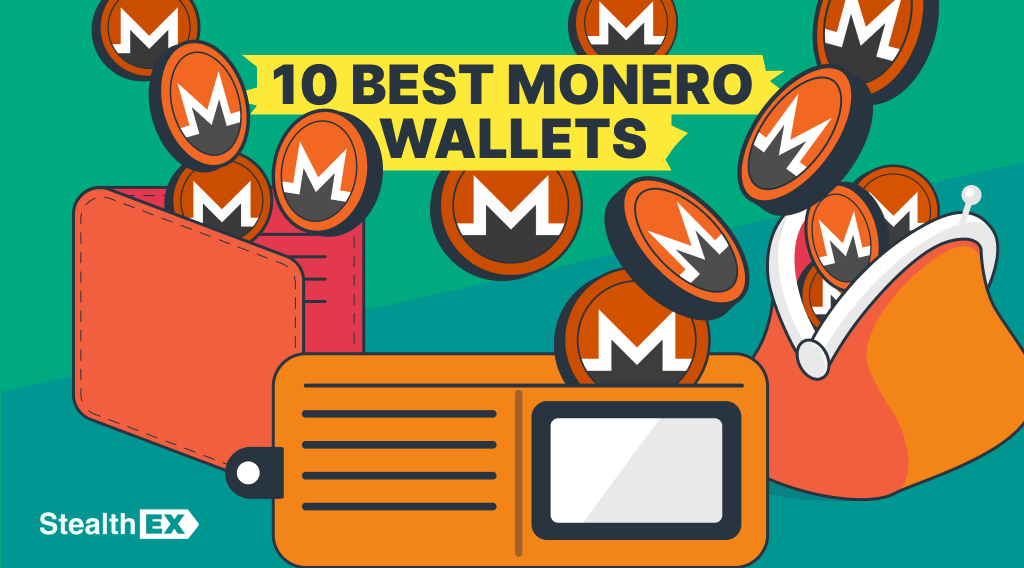El Salvador Bitcoin Buy, Dubai Real Estate Tokens & Spot Dogecoin ETF

Big things are happening in crypto. StealthEX and CryptoDaily are here to break it all down. Every week, we highlight the key updates you need to know. No fluff. Just real news, made simple. Curious about what’s trending? We’ve got you covered with a quick, no-nonsense recap. Perfect for anyone who wants to stay ahead without wasting time. Let’s dive in.

Article contents
- 1 El Salvador Ignores IMF Again, Adds Bitcoin to Treasury”
- 2 Dubai Launches First Government-Supported Real Estate Tokenization Platform
- 3 21Shares Files for First Spot Dogecoin ETF in the U.S.
- 4 BlackRock Eyes Significant Stake in Circle’s Upcoming IPO
- 5 Former CFTC Chief Joins Swiss Crypto Bank Sygnum as Advisor
- 6 Asian Crypto Giant Caladan Expands to U.S. Market
- 7 SEC Clarifies Crypto Staking Is Not a Securities Activity
- 8 India to Release Crypto Policy Paper After Supreme Court Pressure
- 9 Thailand Bans Five Crypto Exchanges Over Licensing Violations
- 10 Reform UK Accepts Bitcoin Donations, Promises Pro-Crypto Reforms
- 11 SEC Drops Lawsuit Against Binance, Closing Major Crypto Case
- 12 WisdomTree’s XRP ETF Enters Official SEC Review Phase
El Salvador Ignores IMF Again, Adds Bitcoin to Treasury”
El Salvador continues to defy the International Monetary Fund by expanding its holdings of Bitcoin. Recently, the nation purchased additional Bitcoin shortly after finalizing a review tied to a significant IMF loan. The move raises the country’s crypto reserves to around 6,200 BTC, valued over $670 million.
The IMF previously expressed concerns about El Salvador accumulating Bitcoin, urging restraint. Despite this, President Nayib Bukele remains committed to integrating cryptocurrency into the national economy. A legal loophole allows the Bitcoin Office, which manages crypto purchases, to function independently from the official government budget. This lets El Salvador continue buying Bitcoin without formally breaching IMF conditions.
Earlier this year, legal adjustments made Bitcoin optional rather than mandatory for transactions. These changes satisfied certain IMF conditions but didn’t diminish the government’s enthusiasm for Bitcoin. IMF officials have warned El Salvador to reduce public involvement with its state-operated Chivo wallet by July. They argue this will minimize economic risks.
Dubai Launches First Government-Supported Real Estate Tokenization Platform
Dubai officially launched a revolutionary real estate platform built on blockchain technology. This system lets investors buy fractions of physical property using digital tokens. Called Prypco Mint, it offers UAE nationals the chance to enter Dubai’s property market starting from just AED 2,000 ($540).
This tokenized real estate project is a joint initiative involving Dubai’s Land Department (DLD), fintech company Prypco, blockchain firm Ctrl Alt, and several local regulators. The goal is ambitious: digitize around $16 billion of Dubai’s real estate by 2033. The platform operates on XRP Ledger technology, known for reliability in regulated environments.
Ctrl Alt developed tools to ensure tokens represent legitimate property ownership, fully integrated into official DLD records. Investors gain instant updates and transparency, a significant improvement over traditional real estate transactions.
Authorities envision tokenized transactions representing roughly 7% of the emirate’s total property sales within a decade. Dubai aims to attract both local and international investors by offering simplified, regulated property ownership.
Choose StealthEX for Exchange and Buy Crypto.
- User-Friendly — Simple and minimalistic interface for everyone.
- Fast and Private — Instant non-custodial cryptocurrency exchanges.
- Buy crypto with Credit Card.
- 2000+ coins and tokens are available for limitless, quick and easy exchanges.
- NO-KYC crypto exchanges — Buy cryptocurrency up to $700 without KYC!
- StealthEX crypto exchange app — Process crypto swaps at the best rates wherever you are.
- 24/7 Customer Support.
Earn from Each Exchange by Joining StealthEX Affiliate Program.
Become a partner right now and use affiliate tools:
- Public API — Earn from your wallet, aggregator, or exchange terminal.
- Referral Links — Recommend StealthEX to your audience.
- Exchange Widget — Built crypto exchange widget on any page of your website.
- Button — A perfect choice for traffic monetization.
- Banner — Track conversion and stats right in the personal cabinet.
Crypto investment firm 21Shares is seeking approval for a new Dogecoin ETF in the United States. This marks the first effort to introduce a direct, spot-based Dogecoin investment product to regulated markets. Unlike futures ETFs, which rely on speculative contracts, this spot ETF would hold actual DOGE tokens.
The application was filed in partnership with House of Doge, linked closely to the Dogecoin Foundation. Their collaboration highlights Dogecoin’s rising credibility as a serious asset, not just a meme coin. The fund aims to track the CF Dogecoin-Dollar Settlement Price Index, directly mirroring Dogecoin’s market movements.
Launching a spot ETF for Dogecoin could attract traditional investors who want cryptocurrency exposure without managing digital wallets or using crypto exchanges. 21Shares, a leading issuer of crypto investment products globally, views this move as a natural extension of its successful ventures in European markets.
Nasdaq has already shown support, filing paperwork to list shares of the proposed ETF. Still, the application faces a detailed review by the SEC, with a final decision expected by January 2026. Approval would represent a big milestone for meme coins, potentially ushering in broader acceptance of similar crypto products in regulated financial markets.
BlackRock Eyes Significant Stake in Circle’s Upcoming IPO
Investment giant BlackRock reportedly plans to buy up to 10% of Circle during its upcoming initial public offering. Circle, the company behind the widely-used USDC stablecoin, aims to raise around $624 million through its IPO. Shares will trade under the ticker CRCL, priced between $24 and $26 each.
BlackRock’s involvement highlights growing institutional interest in cryptocurrency ventures. Currently, BlackRock manages the Circle Reserve Fund, which backs about 90% of USDC’s reserves. While details of BlackRock’s participation remain uncertain, its interest could reinforce Circle’s credibility in the mainstream financial market.
Circle previously attempted to list publicly in 2022 via a SPAC merger, but the deal fell through. Now, Circle’s IPO has attracted other prominent investors, including ARK Investment Management, which aims to buy up to $150 million worth of shares.
Despite these IPO plans, speculation continues about a potential takeover. Firms like Coinbase and Ripple have been rumored as potential buyers, though nothing concrete has emerged.
BlackRock’s crypto interest has grown notably in recent years, with successful launches such as the iShares Bitcoin Trust. Acquiring a significant stake in Circle would further cement BlackRock’s position in the digital asset sector, marking another step in the convergence between traditional finance and crypto markets.
Former CFTC Chief Joins Swiss Crypto Bank Sygnum as Advisor
Christopher Giancarlo, previously head of the U.S. Commodity Futures Trading Commission, is now a senior advisor at Swiss-based crypto bank Sygnum. Giancarlo, often called “Crypto Dad” due to his supportive approach toward digital assets, joined Sygnum’s Advisory Council alongside other global financial experts.
In his new role, Giancarlo will help Sygnum navigate complex regulatory frameworks and build strategic alliances worldwide. His experience at the CFTC, where he focused heavily on modernizing financial regulations, positions him as a valuable addition to the crypto bank’s leadership team.
Giancarlo is known for advocating crypto-friendly policies in the United States. Although speculated to be a candidate for top U.S. financial roles, he chose instead to assist private crypto-focused companies like Sygnum. He believes institutional adoption of digital assets is rapidly approaching a tipping point, making clear regulatory guidance critical.
Sygnum operates across Switzerland, Singapore, and the UAE, seeking to expand strategically in regions that embrace regulatory innovation. Giancarlo’s extensive knowledge of U.S. regulatory environments is expected to provide Sygnum with significant advantages as it pursues international growth.
Sygnum CEO Mathias Imbach highlighted Giancarlo’s experience and connections, stressing the importance of maintaining regulatory leadership to keep Switzerland attractive as a global crypto hub.
Asian Crypto Giant Caladan Expands to U.S. Market
Leading Asian crypto market-maker Caladan has announced expansion plans into the United States, opening an office in New York City. The company aims to leverage recent regulatory shifts in the U.S. crypto environment, emphasizing clarity and openness.
The U.S. has softened its approach to crypto regulations since early 2024, creating new opportunities for digital asset businesses. Caladan intends to capitalize on this environment, extending its proven market strategies from Asia into North America. COO Julia Zhou called the move essential, noting that clear regulations now allow for innovative expansion into American markets.
Caladan will allocate at least 5% of its global workforce to the new U.S. office. To support its U.S. operations, the company has hired experienced leaders from major crypto and traditional finance firms, including Coinbase and BlackRock.
The New York office is crucial to Caladan’s broader goal of enhancing crypto market transparency. Caladan plans to pursue regulatory registrations and licenses, aligning closely with emerging U.S. financial standards. The expansion will also connect Asian and U.S. markets, giving institutional clients improved global liquidity.
Since its establishment in 2017, Caladan has grown significantly, now handling $50 billion annually across over 1,000 digital assets. Its entry into the U.S. is expected to strengthen the firm’s global presence significantly.
SEC Clarifies Crypto Staking Is Not a Securities Activity
The U.S. Securities and Exchange Commission has issued new guidance that brings long-awaited clarity to crypto staking. According to the SEC’s Division of Corporation Finance, staking on Proof-of-Stake networks does not qualify as a securities transaction. This means individuals and businesses participating in staking won’t need to register those actions under securities law.
The guidance, while not legally binding, was welcomed across the crypto industry. Experts say this step brings more certainty to staking services, particularly for U.S.-based providers. The SEC’s view covers a wide range of staking setups, including custodial services, node operators, and self-staking arrangements.
Industry leaders believe this update could help pave the way for new financial products, such as staking-enabled ETFs. The SEC reached its conclusion using the Howey Test, the legal standard used to determine what counts as a securities offering.
Crypto advocacy groups have long pushed for this clarity. In April, over two dozen organizations submitted a letter urging the SEC to separate staking from traditional investment contracts. This new stance signals a shift from the SEC’s earlier, more aggressive enforcement style.
While it may not be revolutionary, the update marks steady progress toward friendlier regulation in the United States. It’s a win for crypto platforms and individual stakers alike.
India to Release Crypto Policy Paper After Supreme Court Pressure
India’s government will publish a cryptocurrency policy paper in June 2025. This comes after the country’s Supreme Court questioned the logic of taxing digital assets without proper regulation. Currently, crypto profits in India face a steep 30% tax, yet the industry operates without a clear legal framework.
During a recent hearing, Justice Surya Kant called the situation troubling. He noted that if the government collects taxes from crypto users, it should also introduce laws to manage the sector. His comments sparked renewed calls for proper oversight of the growing crypto economy.
In response, the government is preparing a discussion paper outlining how it plans to regulate digital assets like Bitcoin. This could be the first step toward comprehensive crypto laws in the country.
India’s approach to digital assets has been inconsistent. Despite heavy taxation and strong public interest, lawmakers have yet to provide a stable legal structure. Industry participants hope the upcoming policy paper will signal a shift toward smarter, more balanced rules.
Global momentum around crypto regulation is growing, and India now appears ready to catch up. The upcoming paper may define how digital currencies fit into one of the world’s largest economies.
Thailand Bans Five Crypto Exchanges Over Licensing Violations
Thailand’s Securities and Exchange Commission has announced a ban on five foreign cryptocurrency exchanges. The decision affects Bybit, OKX, 1000X, CoinEx, and XT Crypto. Starting June 28, 2025, access to these platforms will be blocked for Thai users.
The regulator said these exchanges were offering services to Thai residents without the proper licenses. Officials also raised concerns about potential money laundering. The SEC requested the Ministry of Digital Economy to take action and restrict local access to these websites.
Authorities urge investors using these platforms to withdraw their assets immediately. Once the ban takes effect, users may no longer be able to access their accounts or funds.
The move is part of Thailand’s broader crackdown on unlicensed digital asset services. In 2024, the country introduced new laws aimed at preventing cybercrime and stopping unauthorized crypto operations. Several major platforms, including Binance and KuCoin, were also under scrutiny during that time.
While Thailand supports digital innovation, it has consistently warned about the risks of unregulated exchanges. Officials stress the importance of using platforms approved under Thai law to ensure safety and compliance.
The latest ban serves as a strong reminder: unauthorized crypto operations won’t be tolerated within Thailand’s borders.
Reform UK Accepts Bitcoin Donations, Promises Pro-Crypto Reforms
Reform UK has become the first British political party to accept donations in Bitcoin and other cryptocurrencies. Party leader Nigel Farage made the announcement during a speech at the Bitcoin Conference in Las Vegas. Eligible UK citizens can now donate crypto directly through the party’s updated website.
Farage outlined a bold plan to reshape the country’s approach to digital assets. He said that if Reform UK gains power, it will propose a new bill to cut crypto capital gains tax from 24% to 10%. The legislation would also block banks from closing accounts just because customers use cryptocurrency.
Farage further promised to keep the UK away from any central bank digital currency, saying the idea of a government-controlled digital pound poses risks to privacy. He wants the Bank of England to hold Bitcoin reserves as a signal of national support for crypto.
This move sets Reform UK apart from other British parties. Most still treat crypto as a risky or fringe issue. In contrast, Farage wants to make London a global crypto hub.
The announcement comes as UK lawmakers continue debating how to regulate the digital asset space. With an election still years away, Reform UK’s stance may push the conversation in a new direction.
SEC Drops Lawsuit Against Binance, Closing Major Crypto Case
The U.S. Securities and Exchange Commission has officially ended its lawsuit against Binance. The dismissal, filed in a Washington court, permanently closes the case, meaning the SEC cannot bring it back in the future.
The lawsuit began in mid-2023 under former SEC Chair Gary Gensler. It accused Binance of several violations, including letting U.S. users trade unregistered securities and inflating trading volumes. Binance was also accused of mismanaging customer funds.
After months of delays and shifts in enforcement strategy, the SEC chose to drop the case. This follows changes in political leadership and growing support for crypto-friendly regulation in the U.S.
Binance welcomed the decision and said it showed a new attitude toward innovation. However, the company remains cautious. It still faces other legal and regulatory challenges globally.
The end of the SEC case marks a shift in tone from U.S. authorities. Earlier, Binance paid multi-billion dollar fines to settle with both the Justice Department and the CFTC. Its founder, Changpeng Zhao, also served jail time and stepped down as CEO, although he still owns a majority stake.
WisdomTree’s XRP ETF Enters Official SEC Review Phase
The U.S. Securities and Exchange Commission has moved forward with reviewing WisdomTree’s application for a spot XRP exchange-traded fund. The ETF would allow investors to gain exposure to XRP’s market price without owning the token directly.
The proposed fund aims to track XRP’s real-time value using the CME CF Ripple-Dollar Reference Rate. If approved, shares of the ETF would be listed and traded on the Cboe BZX Exchange. Investors could access XRP through regular brokerage accounts, avoiding the need for wallets or private keys.
The SEC’s formal review follows a public comment period and could take up to 240 days. Regulators will now evaluate the ETF’s structure, focusing on security, market manipulation safeguards, and compliance with federal law.
This decision comes as the SEC reconsiders its stance on crypto financial products. XRP’s past legal battle with the SEC had cast doubt on its regulatory future, but this new review suggests a shift in approach.
Analysts say approval could open the door to more crypto-based ETFs. Industry experts believe the outcome will shape the path for digital assets in mainstream finance. WisdomTree’s application now stands as a test case for both the token and the broader ETF market.
This article is not supposed to provide financial advice. Digital assets are risky. Be sure to do your own research and consult your financial advisor before investing.
Bitcoin crypto world CryptoDaily Dogecoin EthereumRecent Articles on Cryptocurrency
 JASMY Coin Price Prediction: Will JASMY Coin Hit $1?
JASMY Coin Price Prediction: Will JASMY Coin Hit $1?  Best Monero Wallets: How to Safely Store XMR?
Best Monero Wallets: How to Safely Store XMR? 